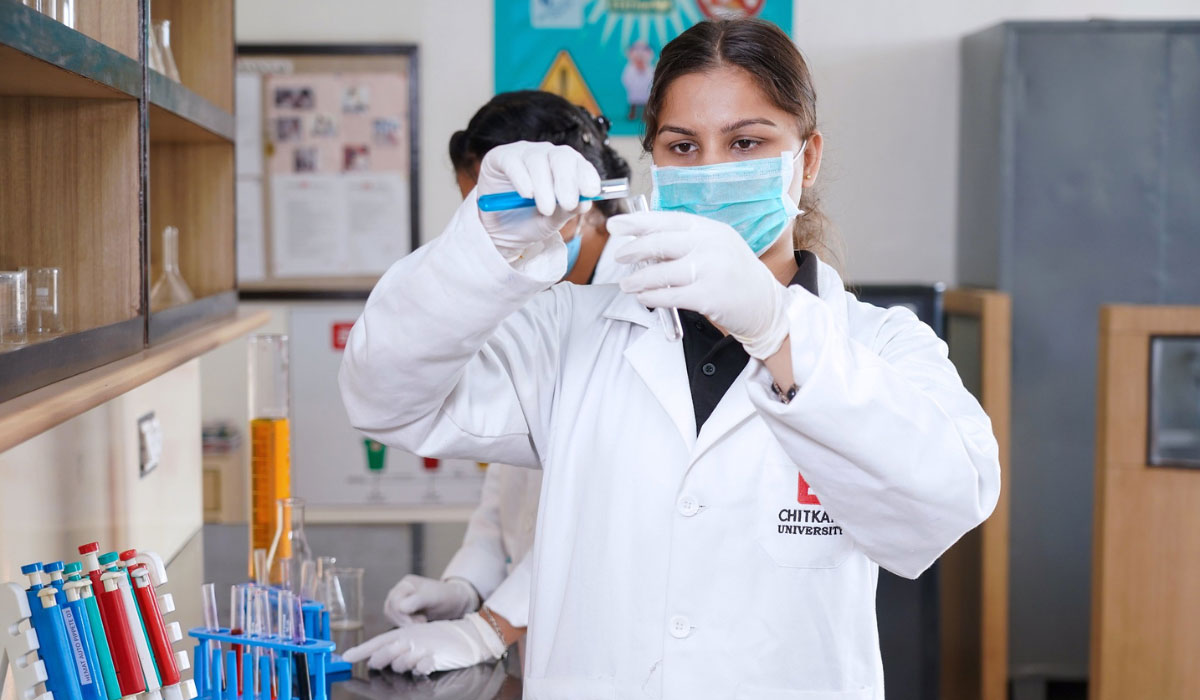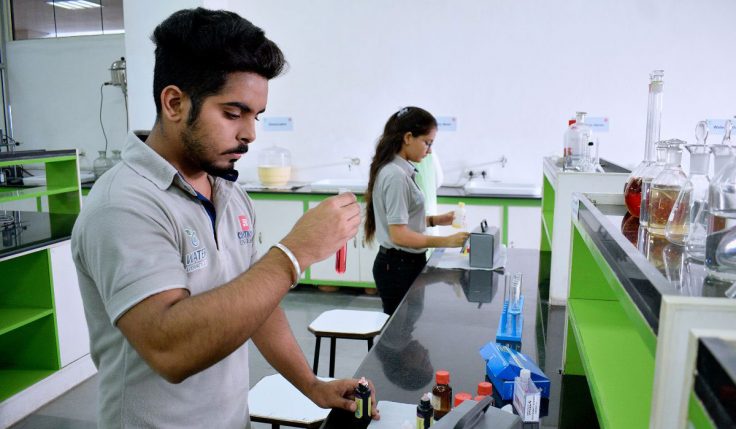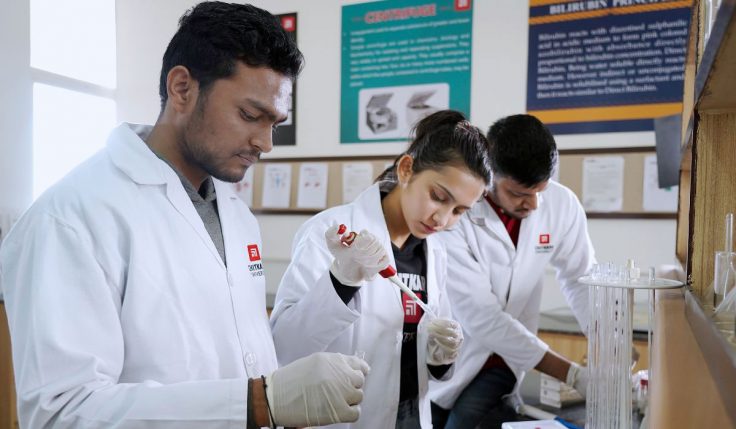With a persistent focus on enhancing the health of people and communities throughout the world, health science research is at the forefront of technological developments in medicine. Keeping up with the most recent developments is essential for prospective students interested in a career in health science programs to comprehend the fascinating opportunities this area provides. We will examine some of the most current advancements in health science research in this blog, emphasising how they are influencing the course of medicine and providing exciting prospects for future healthcare workers.
AI and Big Data Analytics in Healthcare
Big Data analytics and artificial intelligence (AI) are revolutionising the healthcare industry by simplifying procedures and enhancing patient outcomes. Massive volumes of medical data may now be analysed using machine learning algorithms, allowing for the early diagnosis of diseases, the creation of individualised treatment programs, and improved healthcare delivery.
MBA Healthcare programs leverage AI and big data analytics to revolutionize various aspects of the healthcare industry. Applications include accelerating drug development through data analysis, assisting clinical decision-making, optimizing hospital operations, predicting patient outcomes, enhancing marketing and customer experience, improving medical imaging and diagnostics, streamlining financial management and supply chain operations, enabling remote patient monitoring, and advancing personalized medicine. These technologies continue to evolve, offering new opportunities for MBA Healthcare graduates to innovate and improve healthcare outcomes.
Nanotechnology: Advancing Drug Delivery
Drug delivery methods are being quickly transformed by nanotechnology, which also provides more precise and potent treatments for a variety of ailments. Drugs can be delivered by nanoparticles specifically to certain cells or tissues, minimising adverse effects and improving therapeutic results.
Integrating nanotechnology into pharmacy courses enables students to delve into nanoscale drug carriers like nanoparticles and liposomes, optimizing drug solubility, stability, and targeted delivery. They learn to assess potential applications, consider regulatory and safety aspects, and contribute to cutting-edge therapeutic interventions, ultimately advancing patient care with improved drug efficacy and reduced adverse effects. This interdisciplinary approach equips pharmacists with the knowledge and skills to shape the future of drug delivery and nanomedicine, revolutionizing the pharmaceutical industry and healthcare outcomes.
Read this blog post: 10 Things you need to know before entering the Healthcare
Regenerative Medicine: Healing and Rebuilding Tissues
The goal of regenerative medicine is to use the body’s own healing mechanisms to restore and regenerate sick or damaged tissues. A key component of this fascinating field of health science includes stem cell research, tissue engineering, and gene therapy.
The integration of regenerative medicine concepts into physiotherapy and nursing courses equips healthcare professionals with insights into using stem cells, tissue engineering, and growth factors to promote tissue repair and enhance recovery in musculoskeletal injuries or degenerative conditions. Physiotherapists can develop specialized treatment plans incorporating regenerative approaches for improved outcomes, while nurses can provide comprehensive care and support to patients undergoing regenerative treatments for wound care management, post-operative recovery, and chronic disease management. This multidisciplinary approach enables professionals to embrace cutting-edge techniques and contribute to the advancement of regenerative therapies in healthcare.
Telemedicine and Remote Healthcare – Nursing
Telemedicine and remote healthcare have accelerated significantly in the aftermath of recent world catastrophes. Medical experts are now able to deliver consultations, diagnoses, and even treatments remotely because to the combination of technology and healthcare.
Students of health sciences that are interested in this field can research the potential and problems that come with telemedicine and learn how it might close the accessibility gap in healthcare, particularly in underprivileged regions or during crises.
Embracing telemedicine and remote healthcare during nursing education provides students with essential skills, competencies, and experiences that are increasingly relevant and valuable in modern healthcare practice. By understanding and utilizing telemedicine effectively, nursing students can enhance patient care, adapt to technological advancements, and become leaders in the evolving healthcare landscape.
Environmental Health: The Intersection of Public Health and Ecology
Understanding the effects of environmental conditions on human health and wellbeing is the focus of environmental health. Just a few of the pressing challenges researched in this area include climate change, pollution, and newly developing infectious illnesses.
Aspiring medical specialists might contribute to environmental health research by looking for long-term solutions to safeguard communities from environmental dangers and enhance general public health outcomes.
Read this blog post: Top Career Opportunities in the healthcare industry
To summarise, health science research is constantly evolving to improve global health and create exciting prospects for future healthcare workers. Some of the latest breakthroughs include CRISPR gene editing for treating genetic illnesses, immunotherapies revolutionizing cancer treatment, epigenetics exploring gene-environment interactions, gut microbiome studies unveiling microbial influences on health, and precision medicine tailoring treatments to individual patients. Aspiring students in health science programs have the opportunity to delve into these cutting-edge advancements, shaping the future of medicine and patient care.
Accept the spirit of wonder and invention as you start on your adventure into the arena of Health Science programs. Stay educated, explore new paths, and be open to cooperation, since it is your devotion and enthusiasm that will influence the future of healthcare, making a dramatic difference in the lives of countless people throughout the world. The most recent advances in Health Science Research are paving the way for an exciting new era of medicine, and you can be a part of it. Accept the difficulties and benefits that await you as you begin on this rewarding and transforming professional path.
The healthcare business is without a doubt one of the country’s largest and fastest-growing industries. Recognising the critical need for well-trained healthcare workers, Chitkara School of Health Sciences was founded in 2011 with the express purpose of bridging the need and supply of excellent healthcare specialists. Since its founding, the school has quickly acquired notoriety and is today regarded as the most sought-after institution for healthcare education in the region.
The Healthcare Programs of Chitkara University have regularly obtained top ranks in prestigious national and international examinations. The university’s dedication to research, academic partnerships, and strong industry links has resulted in extraordinarily high-quality education and significant community developments.
Chitkara School of Health Sciences is a model of healthcare education excellence, generating future-ready healthcare professionals that have a substantial effect on the global healthcare scene. Chitkara University is the chosen choice for students seeking a rewarding and successful career in the dynamic and ever-changing area of healthcare, with a focus on excellent education, strong industry linkages, research opportunities, and skilled instructors.






